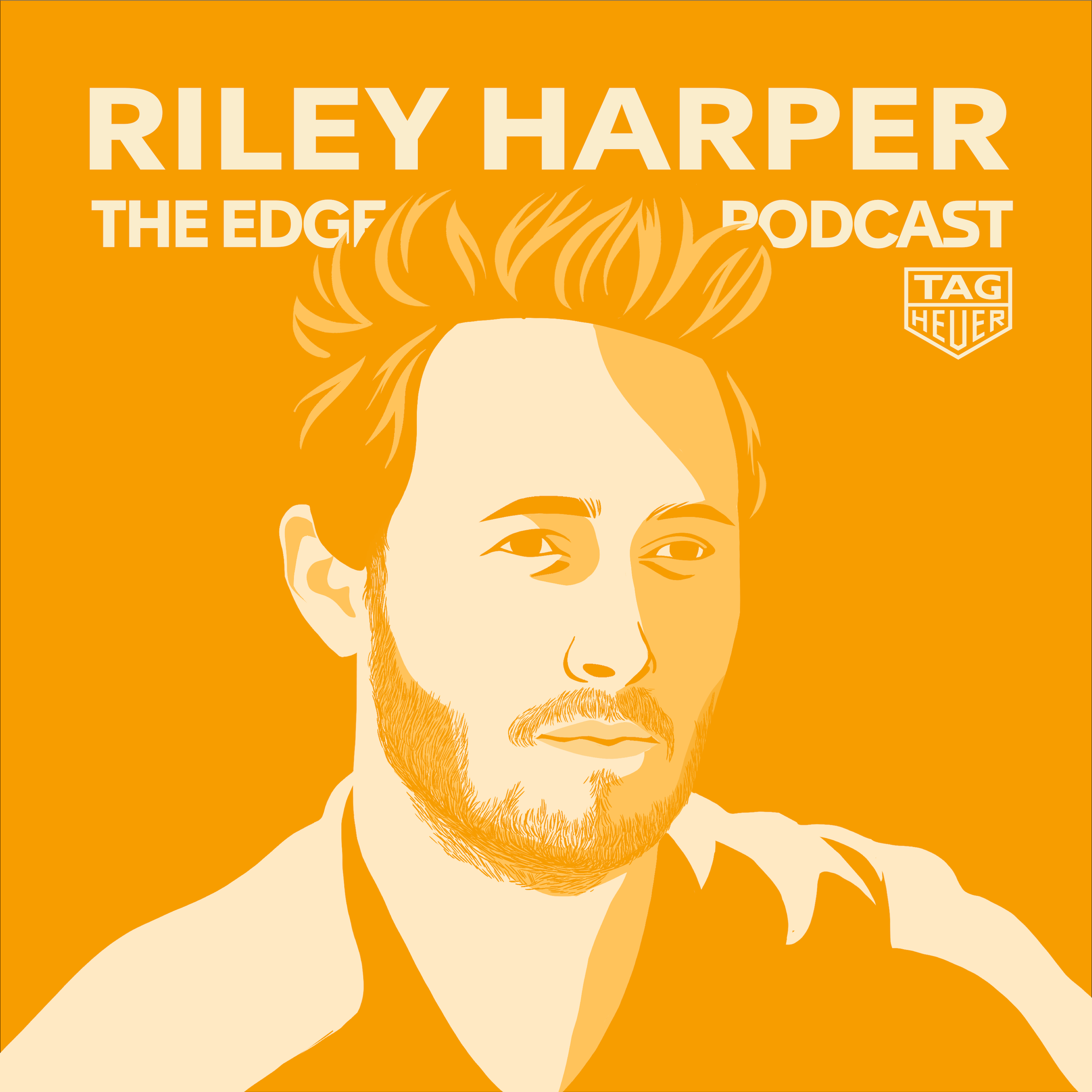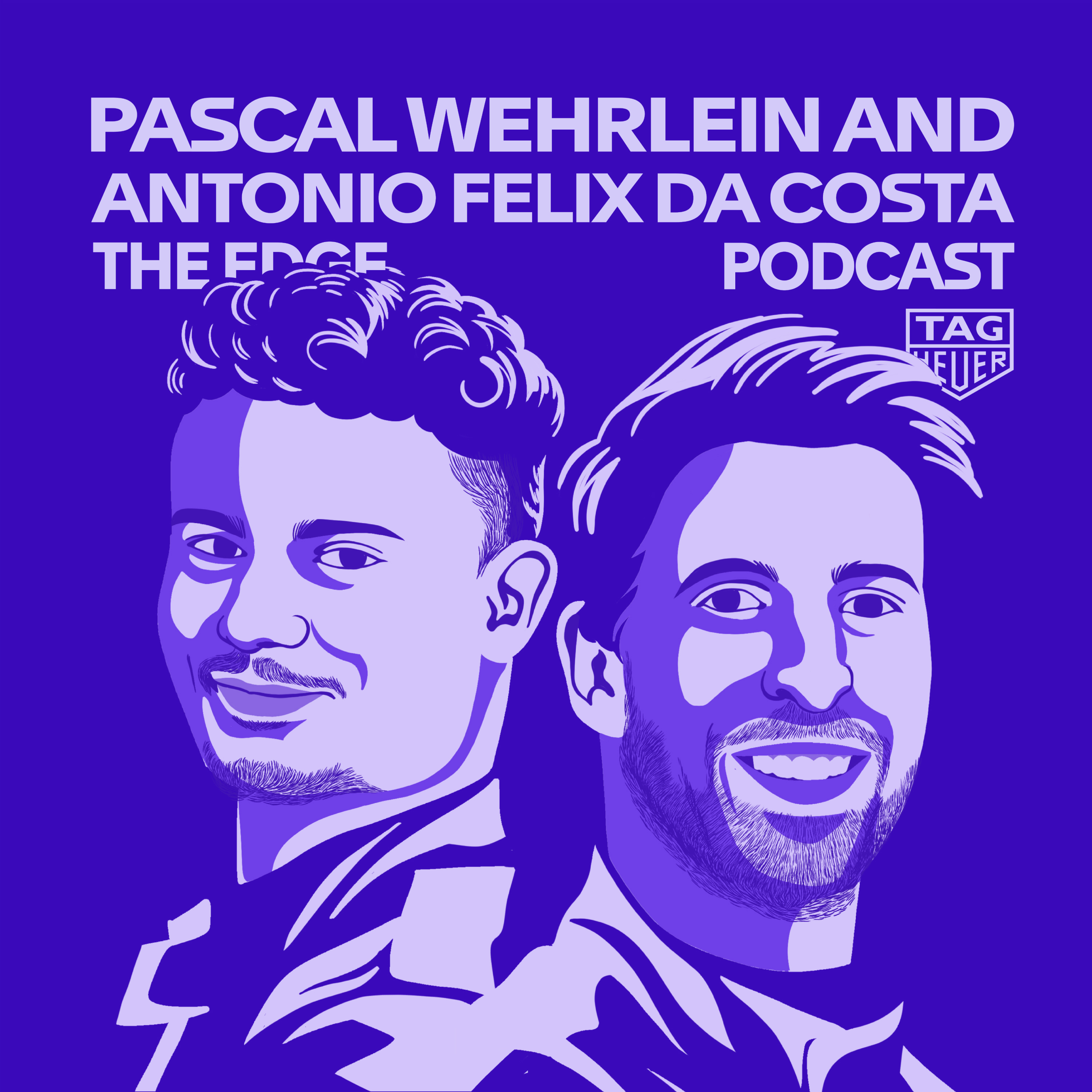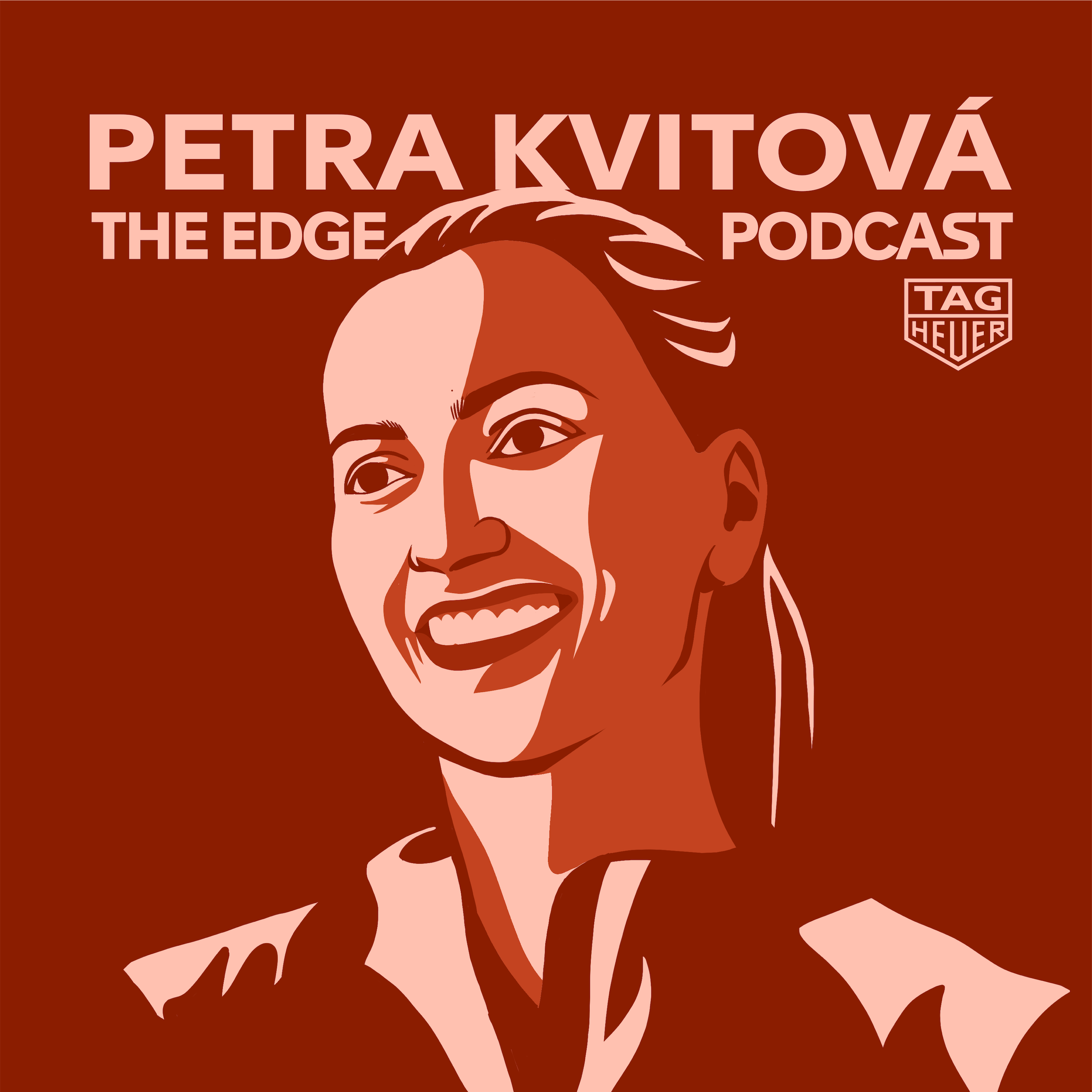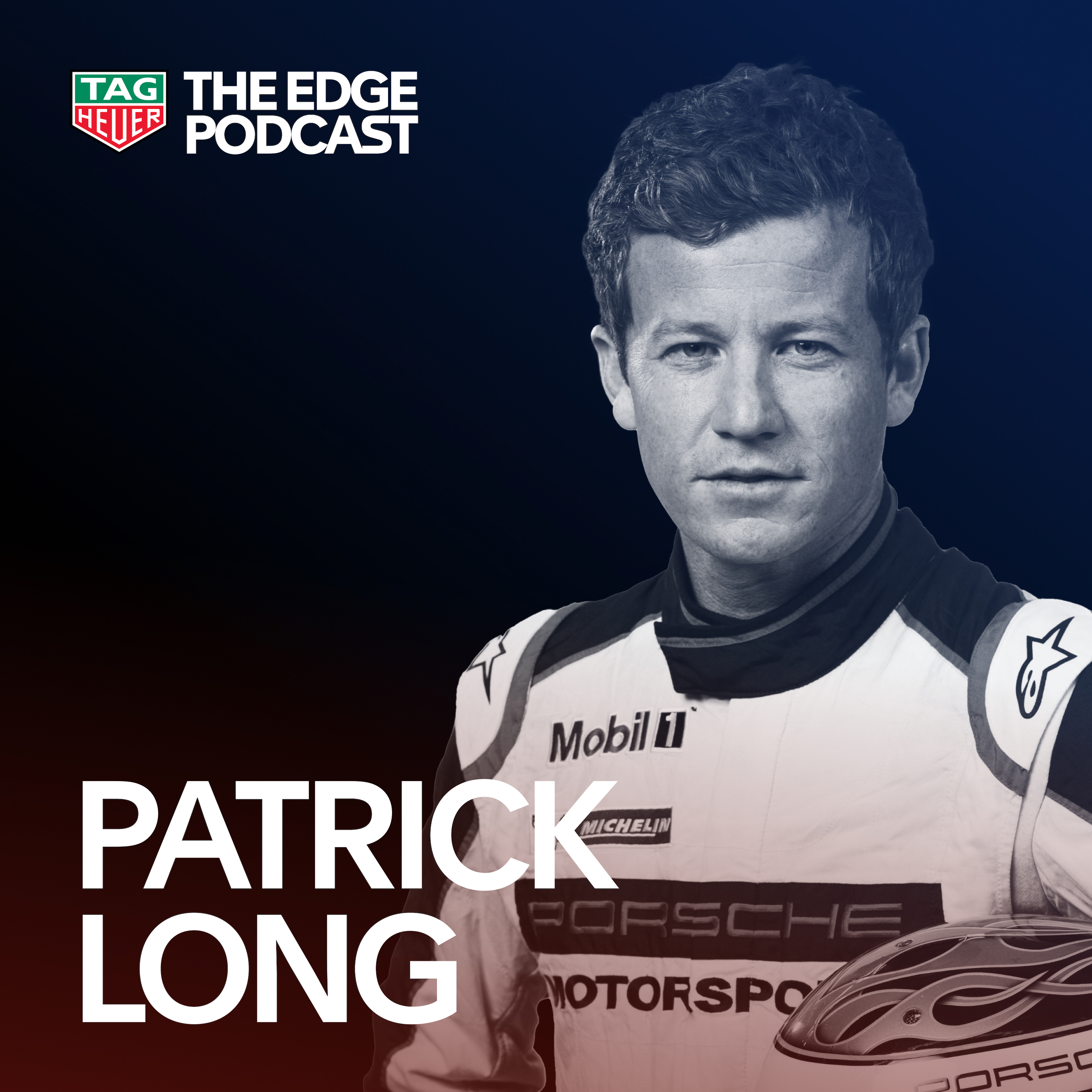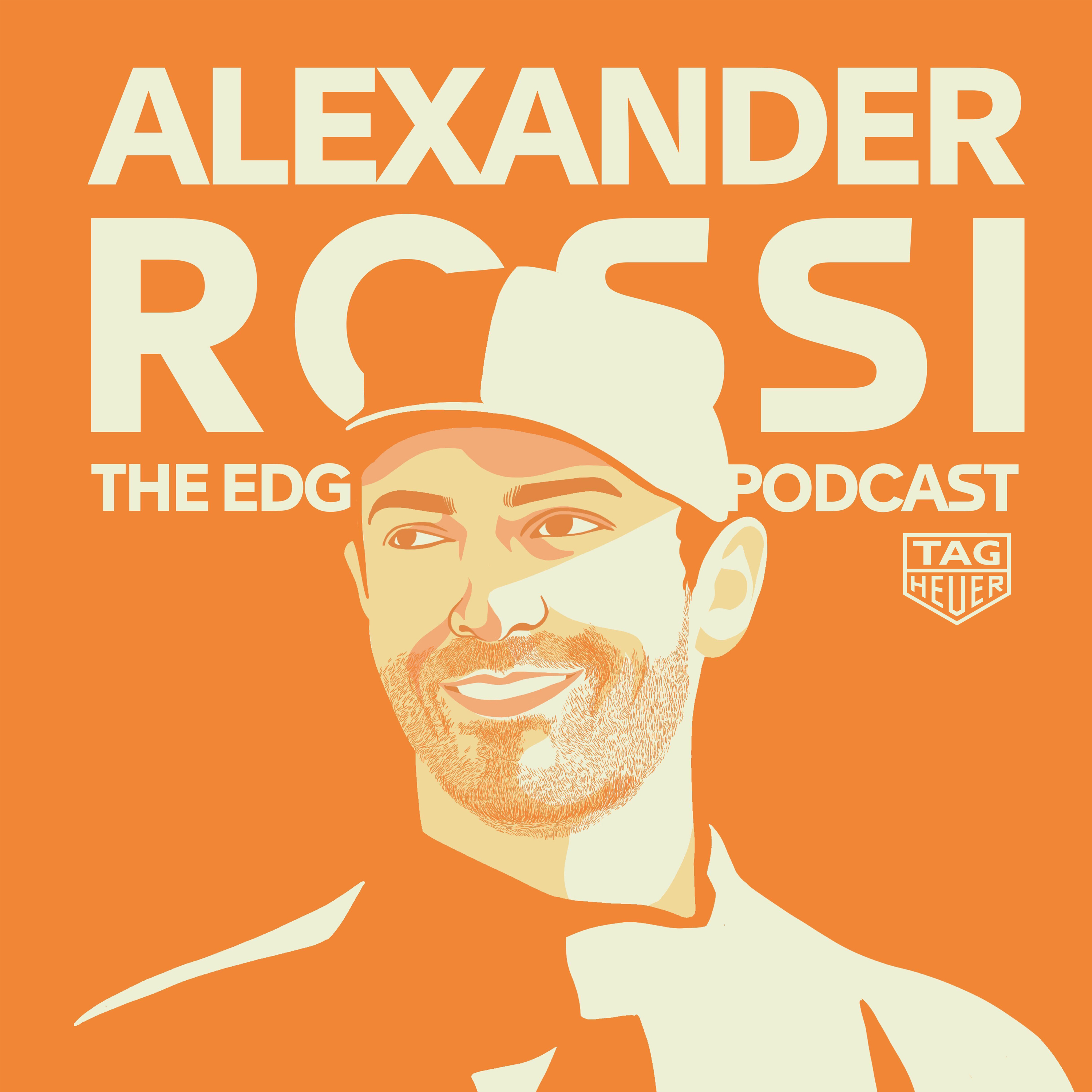Episode Transcript
[00:00:04] Speaker A: Our guest this time is Riley Harper, stuntman, stunt coordinator, occasional photographer, and car enthusiast, riley plays stunt double to some of the biggest stars in Hollywood. Born into a family of stuntmen, he tells us about his action packed life on set and the secrets behind his craft. We also explore his love for car, cars, photography, motocross, and of course, watches. I can confirm that the stunts in this episode were in fact performed by a trained professional. I'm your host, Teo Vandenbrooker. Welcome to The Edge, a podcast by Tag Hoyer.
[00:00:47] Speaker B: Demanding stunts. For me, there's two categories of those. There's mentally demanding, which is, for instance, something that is something that I've done my whole life, like riding a motorcycle. And there's a very specific thing you have to do, which is go down this mountain, jump off this ledge, land in between these trees, and then dodge an explosion and come out the other side.
If all those factors weren't there, I could do that with my eyes closed almost. But you add in all these factors of a big cliff on one side and all these things that can play into ruining what you have to do, basically.
And those for me, are the most mentally demanding because there's such high consequence of getting hurt or dying on a lot of these.
And you really have to grasp your mind of what's going on and just do the feet that you have in front of you. And then there's the really physically demanding ones. That could be a very simple task, whether it's being on a cable and getting flung across a room and hit the ground and roll 10ft and you know it's going to hurt no matter what. And it's just the act of trying to make it not hurt as much as possible and having to do that potentially 3510 times, waiting for everyone to get the shot as they want. That's the stuff that's very physically demanding. That is the repetition of doing multiple shots that really just wears on you.
Golden arc for being a stuntman is just your general trajectory. I feel like everyone has different paths within the stunt industry as a whole. There are so many different avenues nowadays. When I was growing up and when I was young, my dad and everyone in that era of stunts, you really had to do every single aspect of stunts. You had to be really good at everything or else you couldn't work. You'd be on set in the you had to be able to, at the drop of a hat, kind of do anything.
Nowadays, there's a lot of very specific niche genres within stunts. A lot of people stick to their genre, what they're great at, and I always try to stick with the original of trying to be great at everything. And so for me, it was always trying to do as many things as possible within stunts and kind of having my own personal bucket list of things I want to accomplish, whether it's flipping a car or crashing a motorcycle or doing a huge jump on a motorcycle or doing a fireburn or a high fall or a car hit. All these different aspects of kind of big stunts to me.
So my personal arc was always just kind of working with great people first and foremost and being in cool locations and having a lot of fun, but trying to kind of check off my personal list of accomplishments.
Every job is challenging, for sure, and every job has its own its own challenges in every aspect. But for me that one of the biggest challenges is just being gone and not being home and being living somewhere new all the time and always being surrounded by the same people in the same environment. And it's really fun in that aspect, but it's also kind of tiring. You want to be home, you want to be with your family or your friends and that whole side of it is always challenging. But I would say individual jobs and just really demanding ones. There's one Point Break, which is a really bad remake of the original Point Break and we shot that in Austria. And in that sequence we shot all the motorcycle and car sequences for the movie, or majority of them, I should say. And that show, for instance, every day there was such high consequence of getting severely hurt, which I did molt. I dislocated my shoulder and tumbled down a mountain that was I don't even know how long, but on a motorcycle riding through very steep canyons with trees on each side and any little wrongdoing, you could get really badly hurt. And also for some of the car sequences, flipping cars on purpose, a thing called a pipe ramp where you basically hit a pipe that is angled like a ramp and it flips the car on purpose and you tumble down the road. And we did that and there was probably 1000 foot cliff on our right on a little two lane road with no barriers or anything to keep you from going over the edge. And that job just comes to mind as being an extremely every day you had to be so on top of your game and just on top of it to make sure you don't make any small mistake because there's such a high consequence, to be honest. For injuries have most of my bad injuries, I should say, have come from my non work playtime, I would say, of racing motocross and doing stupid stuff with my friends in between jobs. And all the stuff on set that I've had injury wise has been concussions and luckily no broken bones on set for me. But a lot of stitches and the general wear and tear of just years of hitting the ground professionally is the worst of it. Both of my shoulders I've avoided surgery for probably ten years, but I've had surgeries on my knees and all the ligaments, and just, like, the damage of your body over years is kind of the worst of it for me.
I think becoming a stuntman was kind of ingrained in me since I was born. I grew up around a family of stuntmen. My dad, my uncle, all of my dad's closest friends, and everyone I was basically growing up around was a stuntman. So growing up here in Los Angeles, it was just a very normal thing to be visiting my dad on set or visiting him in other states or countries to see him.
And I think just my general lifestyle of I grew up racing, and I think that kind of lends a big hand to just being around it constantly and kind of having the right mindset, I guess, to do it well. My dad always was extremely supportive of whatever route I wanted to take. I was racing motocross a lot when I was a kid. He supported me doing that thoroughly from age four until I was probably 15, and we kind of had the conversation where he was like, okay, you need to kind of choose, here what you want to do. You can continue racing, and I'll help you do that if you want to turn professional and keep going that route, but if you want to keep doing stunts, which I was doing at a very young age. I started working when I was seven, so it was always kind of in my court to decide which route I wanted to go.
He didn't really push me in one way or the other, but we definitely had the conversation of, you need to kind of decide now you're turning into an adult. You need to kind of pave your path. And so I kind of just saw longevity in racing wasn't really what I could get with doing stunts and working in the film industry. It was just the longer goal, seemed like a better option.
You every stunt sequence has a different kind of plan of attack depending on what the project is. But the most common, I would say, for me is working on a larger scale movie where you have luckily, you have a lot of time to prepare that generally looks like getting there three or four months before you even start shooting. And you start kind of going through the script with the stunt coordinator and understanding what needs to get done and just starting to rehearse and play with things. Because a lot of this stuff nowadays, especially everyone's trying to one up the one prior. So I think that you're there for probably three or four months, and you're trying to just create new sequences and make the script work and make it look as cool as possible. And a lot of times you're training with actors and they're coming in to learn some fight scenes that they have to do throughout the film or generally just coming to work out with us and things like that. But you're really working with the whole stunt team to just get the entire script and previz a lot of it, which is basically shooting the movie, or I guess the stunt sequences before they happen so that you can show the director. This is what we prevised. This is how we sometimes the director will give us an entire, basically, cartoon to work off of, with exact frames of how they're going to shoot it. Which is great, because then we can go in and we can rehearse it all, we can prep it, we can shoot it in our own way, show them, and then they're happy. And then we know when we get there, we have a complete map of what we're going to be doing when we get to set that day, whether it's four months away, potentially.
And then you just go and you shoot. Once you're done with rehearsals, everything's been signed off and you've figured everything out, it's then just chugging along and making each day work.
Staying in shape for me has always kind of evolved as I get older. I would say when I was younger, I was just constantly active and I was still racing motocross all the time in between jobs, and I was doing every action sport there was.
And now that I get older, I get a bit more knowledge on what is good for me and what's not.
Taking the risk away of getting hurt in between jobs has been a really big thing for me. So slowing down a bit of doing the really extreme stuff and more sticking with a trainer and doing personal training throughout the week. I'm a really big sauna and ice bath person. I've been addicted to sauna and ice bath for probably four, four or years now.
So I have a set up in my house where I do that every day, no matter what.
That's mostly for just recovery and mental clarity, I would say. But yeah, mostly nowadays it's personal training. I do a lot of like cardio mountain biking and swimming, still surfing and things like that, but tamed it down, definitely.
I mean, that's kind of the beauty of stunts is doing stunts is one version of the stunt world in the film industry. That's usually what you start with and you start doing stunts. And some people are performers their whole life into their sixty s or seventy s even, and doing car driving stunts into their later ages in life, which is amazing because some people are just so talented and their bodies hold up over time and they keep going with it.
The kind of normal trajectory is getting into stunt coordinating after you're doing performing because you really know everything. You've done it all, so you know what it entails.
So for me, getting into coordinating was always a goal and wanting to coordinate films, so I've coordinated quite a lot with my dad hand in hand on some bigger features, and then I've done a lot on my own with movies and commercials and TV stuff, but that's kind of the normal trajectory. And then after that, going into second and directing is a big move. Not a lot of people end up doing that because you have to be really into filmmaking and you have to know what you're doing. You can't just kind of jump into it.
But that's kind of the natural arc that I would say, for me, is where I'd like to be.
[00:13:12] Speaker A: Does second unit directing appeal? Is that something you'd like to do?
[00:13:16] Speaker B: Yeah, I would definitely love to second unit direct. I mean, a lot of people get into even just directing, you know? And I think the creative side of filmmaking for me has always been so interesting, and I've always really paid attention to directors that I've worked with, which I've been so lucky to work with, literally some of the best in the world. And working with someone like Chris Nolan for four or five months, you just can't help but be amazed by someone like that. So that's always gotten me to be interested in directing itself and just the creating side of a film and coordinating. You get to do a lot of that. You're really working hand in hand to make a scene come together. But I love every aspect of filmmaking, so I think directing, for me would probably be the most important thing I'd like to do, whether it would be even car commercials and automotive, things like that. I love vehicle work and simple things like that. Up to second unit directing big action sequences would be great.
[00:14:18] Speaker A: What lessons would you say you learned from working with someone like Chris Nolan? That must be incredible, working with a director like that.
[00:14:26] Speaker B: The thing about Chris Nolan, specifically, that I just am so amazed by is he's the most efficient director I think I've ever witnessed. And on some movie sets, you have a huge video village with people from Warner Bros. Or whatever it may be, and there's ten people behind all the monitors giving their two cent, or they're just there to watch, and executive producers and everyone in between. And on a Chris Nolan film, it's him and his wife, and there's no video village. He has a small monitor on his neck that's a little necklace monitor that's very outdated, actually. And he has his green tea, and he holds his monitor, and he just sees what he knows he wanted to get. As soon as he gets it, he moves on. There's no big moves to each. It's very efficient and just clean and tactile, and it's really inspiring because you know that he's such a brilliant guy with the stuff he writes and directs that you can only imagine what's actually going on in his mind just during a day of filming. It's amazing. And he also really respects stunt people, and he really respects what we do and is always so accommodating to making sure that we have everything we need to make a sequence work, because he knows how doing practical stunts is so much better than relying on visual effects. He likes to do everything as practical as possible, which for us is always the best news to hear.
[00:15:55] Speaker A: Amazing. What a gift to work with such an amazing director. So, let's talk about cars. Where did your passion for cars and motorcycles first generate from?
[00:16:05] Speaker B: Cars and motorcycles were always probably the most common thing in our household.
Most kids grew up watching cartoons. I mean, I did, too, but the movie on any Sunday was constantly on repeat in our house, which is an iconic film. If no one's seen it, they should go watch it right now.
All those iconic movies from back in the day that my dad always had, and he always had us watching, it just was constantly in our face. Saturday mornings, Sunday mornings, we're always watching racing first thing in the morning, whether my dad was always on the couch watching racing. And we grew up as a racing family, like my mom, my sister, my brother, my dad. We were at the races every weekend. So that was kind of our version of a normal sporting family, was just being around cars and motorcycles in our garage. My dad, he built a 36 Ford hot rod. So when I was a little kid, always watching him like wrenching in the garage on this hot rod he was building. I don't know, it's just one of those things that it's always as a young kid, it either grabs you or it doesn't. And I got it pretty bad.
[00:17:18] Speaker A: So do you prefer vintage or new?
[00:17:21] Speaker B: Vintage and new is the constant struggle. I think of cars specifically, and bikes as like, tools. There's a different tool for each job. And I've had so many motorcycles and cars throughout my life because it's my Kryptonite. I love it so much. But as I get older, I try to simplify a bit and understand what are the essentials that I want in my kind of stable of toys. And vintage Triumph motorcycles are really special to me, and my dad and I built one from the ground up probably twelve years ago or so. So that bike is kind of my pride and joy. And then I have a 74 targa Porsche. That is just kind of my weekend, but also kind of daily driver. But yeah, I mean, I tend to go more towards vintage as opposed to modern, but you just can't beat a beautiful modern car or motorcycle. They're totally different animals.
[00:18:20] Speaker A: So you're a collector, would you say?
[00:18:23] Speaker B: I wouldn't say I'm a collector, but I have collected over the years, and currently, for me, I've very much liquidated and just kind of have the essentials that I think I need.
[00:18:35] Speaker A: Okay, that makes sense.
[00:18:38] Speaker B: So what about watches, man, watches I got into later in life, to be honest.
When I was a kid, I would save up, and I remember I got a freestyle watch from the local surf shop. It was just like a little velcro strap watch that I saved up for, and it was like my pride and joy. And then I never had a watch since really when I was in my teens and early twenty s. I just was more enthused on spending my money on a motorcycle or something that I could really have fun with. And then as I got older, I kind of started learning more about different watch manufacturers and also the heritage of different brands. And I started to just become more interested in it, naturally. And I had some friends that were more into it than I was, so I'd always ask questions and kind of understood what I liked from a visual standpoint and then learn more and more what I think the mechanical side of things and the usability of certain watches. And it's a very similar thing in my mind to cars and motorcycles. I think that's why a lot of people love all three.
It's a very similar mentality. I think if you appreciate watches, you definitely probably appreciate cars or motorcycles.
[00:19:55] Speaker A: I think you're probably right on that front.
So do you collect watches now?
[00:20:00] Speaker B: Again, I wouldn't say I'm a collector of watches, but I definitely have quite a few now, and I try to keep it pretty minimal of having each watch for a certain it's a tool to me also, it's like same thing as a bike and a car, each one. I don't want to have duplicates of the same thing. So I like to have certain watches that accent certain activities or things that I use in my life. Personally, I definitely wouldn't say I'm an avid collector, but I definitely enjoy accumulating them.
[00:20:39] Speaker A: So you're passionate about photography. We'll finish on this.
Tell us a little bit about that and how does that passion fit into your work?
[00:20:48] Speaker B: Photography has always been just a really big hobby of mine since I was really young. I was always interested, and I just always had a camera with me. And I think that growing up probably in the film industry and being around cameras and filming in general, I always had the interest of that. But when I was a kid, I always had like a camcorder and a little random film camera that I was taking pictures of my friends at the skate park, or I was doing a lot of traveling in my teens. Between work, I would just go and go on surf trips or go out of the country and go travel. I'd have always been a big traveler, and so just documenting my life was always so fun.
So it kind of turned into now, a career of doing a lot of photography. When I'm not on set doing stunts. And it's a really nice balance for me, being really creative with photography and videography in a completely different aspect of doing high action film stuff.
[00:21:53] Speaker A: But it does sound like something that could marry very well into directing at some point.
[00:21:58] Speaker B: Yeah, I definitely think that it'll lend a hand at a certain point to directing, so we'll see.
[00:22:04] Speaker A: Fantastic. Riley Harper, thank you so much for joining me at The Edge. It's been inspiring talking to you. Absolutely brilliant. Thank you so much.
[00:22:11] Speaker B: Thank you very much. Great talking to you.
[00:22:23] Speaker A: Thank you for listening to this episode of The Edge. If you'd like to listen to more episodes like this one, have a listen to our interviews with Jacob, Ella D, Patrick Dempsey and the Russo brothers. If you enjoyed this episode, don't forget to subscribe and leave us five stars. It does make a difference.
Thank you to Riley Harper for joining us. I'm your host, Teo Van Nambrooker, and I'll be back next month with the final episode of this season. So stay tuned to The Edge, a podcast by Tag Hoyer. See you soon.
